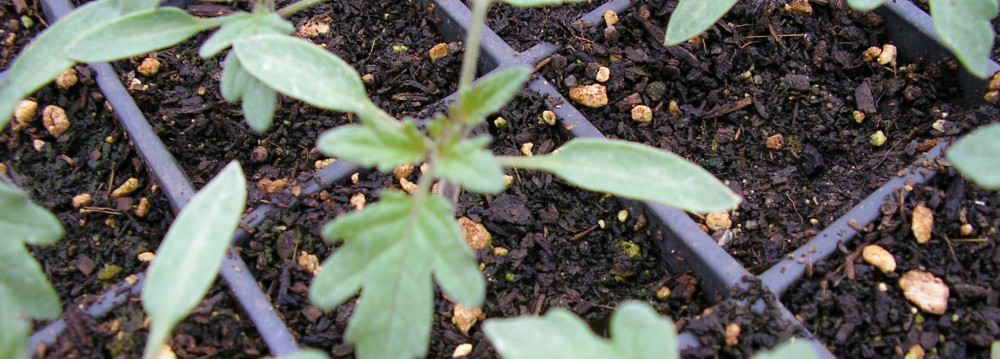Riverbend Farm Early Summer Newsletter
Ahh, you gotta love a rainy day. The last three weeks have been windy, hot and dry. We have only had 0.1” of rain in that time. The week before the little dry spell happened we had 4.5” of rain. Even the plantain and timothy were wilting and turning brown. It was dry. The good news is that the mosquitoes are only a minor nuisance and planting was not held up due to soggy field conditions.
Since the last newsletter we have been busy planting and transplanting. On the last Saturday of May we had a crop mob (thanks to everyone who helped out.) plant 4500 tomatoes. It was a little touch and go due to all the rain we had the week before but by Friday night I could pull a light disk through all of the beds and by early Saturday there were only a couple places where my regular disk sunk in and made ruts. The other issue was that the night time temperatures were getting down into the low 40°s, too cold even for tomatoes.
Mark ( a crop mob stalwart) and his son Nils stayed late and helped me set up sprinklers for the newly transplanted tomatoes. A week later Gabe got a chance to become familiar with a new tractor and cultivated all the tomatoes. They look great.
The following week we used the transplanter to set out about 5000 peppers and eggplant. The vast majority of the peppers were some type of specialty pepper. There were lots of paprika, jalapeno, fresno, sweet habanero, carmens, and yellow bells. This week we did about 3000 cabbage, kale and broccoli plants.
It takes five people to operate the transplanter. Mary has been anchoring the crew back there while I drive as slow as I can. Kathy, Gabe, Bri, and even Dave Rieder have feeding in the plants. It takes a big crew but we can set out thousands of plants in just a few hours if everything goes right.
Another great thing about the transplanter is that it gives the seedlings a shot of water as it plants them. When the weather is this hot and dry the little plants need to be watered in but the water they get during planting will keep them from wilting for a few hours.
This rain had been forecast for most of the week so I had been busy planting every inch that had been worked up. Most of what went in over the past few days was corn, green beans, dry beans, winter squash, melons, cucumbers, and zucchini. There is still more to plant but I’m out of room.
A few things came together to jam up the planting schedule. The one that has things backed up right now is the winter rye cover crop. When it is dry the rye sucks all the moisture out of the soil and that makes the ground very hard, too hard to plow. It makes it so dry even the little weeds dry up. Not keeping up with the planting schedule causes a lot of follow on problems at harvest time… We have a short window to get all the warm season crops planted. If the weather doesn’t cooperate a little there is not much we can do.
Today’s rain will go a long way towards solving that problem. We got about three quarters out of this storm. It rained fairly hard but not hard enough for the ground to get saturated and start to wash. The moisture will cause the rye to relax a little so I can till it in.
Today’s storm was just developing as it went by here. In town there was hail and it made a mess out of neighbor Cathy’s greenhouse ( she is selling plants and flowers at Peterson’s roadstand). We were lucky.
Weeds are always an issue here. Between the regular lambsquarter, pigweed, and foxtail there are perennials like quackgrass and thistle. It looks like the quack and thistle had a great year last year. As you know, we have a sandy soil that eats organic matter at an incredible rate. To try and improve the soil I didn’t do any tillage in this year’s veggie field for two years.
When I plowed up those beds this spring the soil looked great. The structure of the soil was much better. The action of the undisturbed roots and decaying organic matter created stable clods that don’t immediately breakdown into beach sand. The soil aggregates hold more nutrients and water while letting air circulate through the soil making a great growing medium for plants.
Unfortunately some of those plants are perennial weeds like the afore mentioned quack and thistle. The other new weed that did well in the undisturbed soil is little box elder, elm, and prickly ash trees. They are small enough to plow under easily. Perennial weeds are hard to get rid of but simply mowing helps keep them in check. Time to re-tweak my fallow rotation.
That’s enough for now
Greg
Upcoming events:
CSA starts this week
Crop Mob last Saturday of the month. Got to the Birchwood website to sign up (thanks Tracy)
